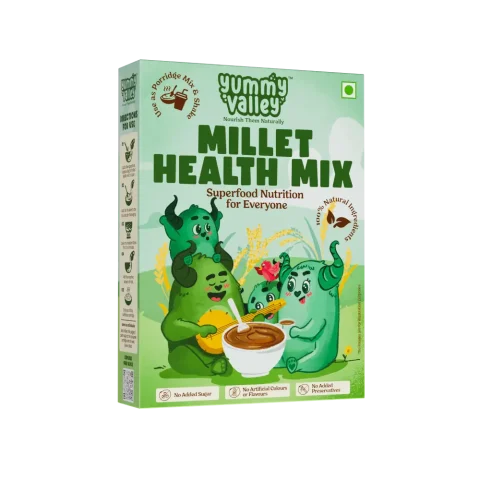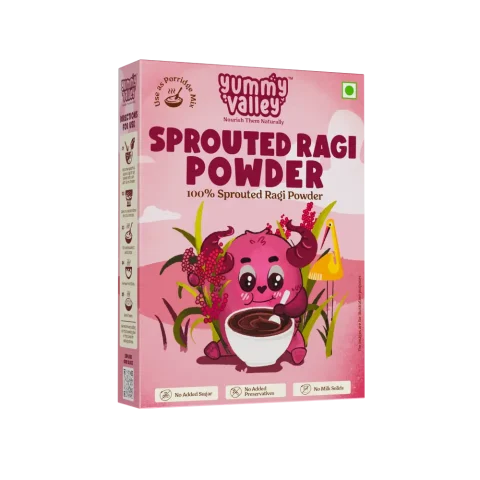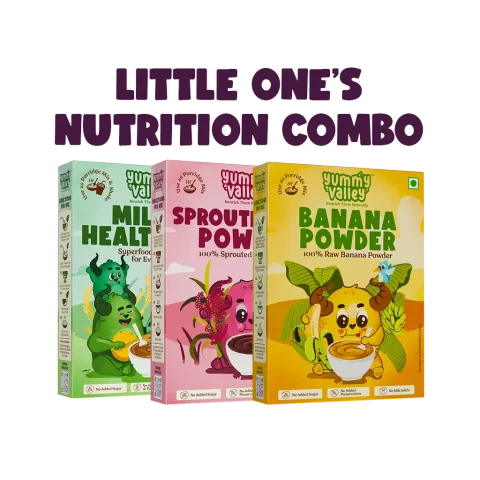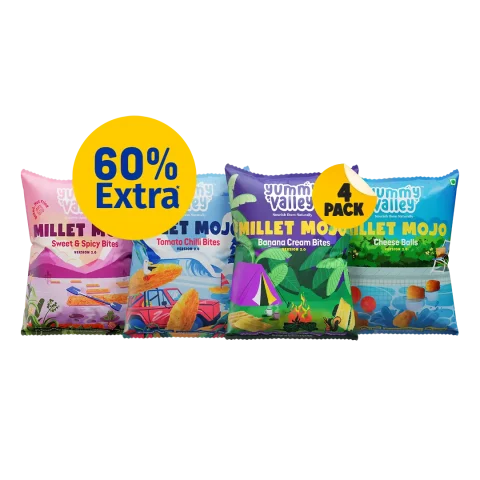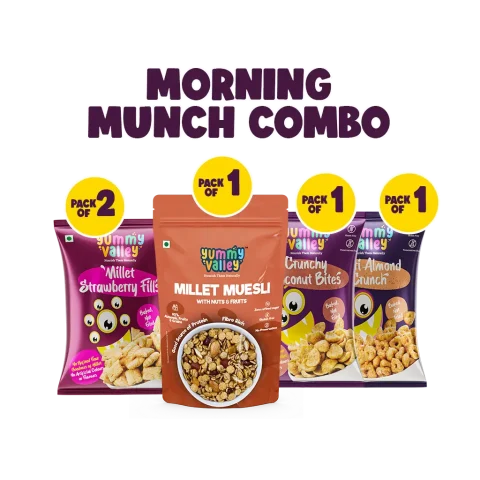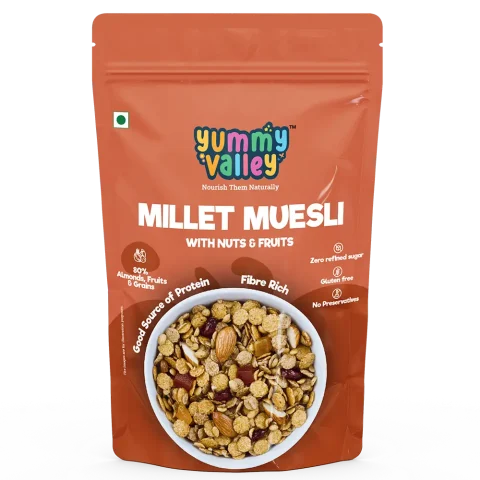YUMMY VALLEY’S SALE 🎁
Free Millet Mojo Snack With Millet Muesli & Porridge Mixes
COD Available for Orders Above ₹299
- Your cart is empty
- Continue Shopping
Toxic Ingredients In Baby Formula That Must Avoid
- Published on:
- Last update: 30 January 2024
- Post updated 3 times

Harmful Ingredients in Baby Formula: Many recent studies have suggested that a large amount of baby formula can contain harmful chemicals that are damaging to your infant and even affect their growth and development. The study found that approximately 80% of the formulas contained arsenic along with a wide range of other ingredients you would not approve of. In this article, we are going to discuss the 6 harmful ingredients in baby formula that you must avoid.
Table of Contents
ToggleHarmful Ingredients in Baby Formula
The World Health Organization and many other organizations proclaim that breastfeeding is best for babies; however, for some new moms, this is simply not feasible. Therefore, education on other options is important, such as goat milk formula, for such moms.
You may want to keep an eye out for or avoid these harmful ingredients found in baby formula:
1. Sucrose
The presence of sucrose in formula despite being one of the milder toxins, can still cause several problems. As one of the essential ingredients in the formula, it aids in the digestion of milk; however, it has been reported that some formulas contain too much. Children may become obese and suffer from dental problems such as weak enamel. Additionally, it can be addictive.
2. Soy
Soy-based products account for approximately one-fifth of all formulas sold, and although they may seem harmless, soy poses many issues when used as an ingredient for infant formula. It is common for genetically modified soy to be laced with pesticides or weed killers, which is not ideal for a newborn baby to consume.
3. Artificial DHA and ARA
ARA and DHA are natural fatty acids found in breast milk; however, in formula, they are synthetically manufactured to reassure parents that their infants are getting a high-quality formula. Despite their benefits, artificial versions are derived from algae and fungus, which are not intended for human consumption.
In the process of gathering, the petroleum-based solvent hexane can be used, which can end up in the formulation and negatively affect the nervous system of the consumer.
Several studies have demonstrated that synthetic DHA and ARA are useless, have no benefits for babies, and may even contribute to some stomach problems.
4. Dioxin
Formula for your baby contains this substance, which is known to cause cancer. This chemical is found in many foods and places in our environment, making it very difficult to avoid.
Infants are born with this substance already in their bodies and are then fed it continuously for life after birth.
5. Preservatives
There are both normal and organic formulas that contain these substances. The manufacturer adds preservatives such as beta carotene and ascorbyl palmitate to extend the shelf life of its products. Artificial substances can cause the body to create toxins that can even cause infants to fail to reach developmental milestones and cause negative changes in their sight and hearing.
6. Synthetic Nutrients
The purpose of adding synthetic nutrients to the formula is to mimic breast milk. Examples include L-carnitine and lycopene. Due to manufacturers trying to process these ingredients most cheaply while using harmful chemicals to make them, it’s known that they can be toxic, resulting in long-term harm to infants who consume them. The findings of studies have demonstrated that children fed toxic-rich formulas are more likely to develop chronic diseases and die younger.
you save ₹19
Watch out for Heavy Metals
Nowadays, it’s difficult to avoid exposure to harmful chemicals, and there is heavy pollution everywhere you look. We as adults have developed immune systems to fight these effects, and in comparison with our body weight, we take in a much lower amount than those in children.
These chemicals can, however, cause harm to newborns and small infants who have highly weakened immune systems and low body weights, leading to brain damage and stunted development. As a parent, it’s important to stay informed and aware when it comes to making decisions about your child’s diet.
Heavy metals can be found in soil, water, and the air we breathe. We can ingest these metals through the food we eat because plants absorb them as they grow. Even though some heavy metals (like iron and zinc) are necessary for our bodies, others (like arsenic and lead) are harmful. There are some crops, like rice, that absorb more of these harmful metals than others. Over time, heavy metals can accumulate in the body and harm learning, behaviour, and attention.
Some food additives may contain heavy metals when added to baby food. Vitamins and minerals are added along with food additives. Some baby foods contain more heavy metals than others, such as:
- infant rice cereal
- Infant rice puff snacks
- teething biscuits and rice rusks
- fruit juice
- carrots and sweet potatoes
Organic baby food may contain heavy metals. While baby food contains low levels of heavy metals, you can take steps to reduce them even further. Here are ways to do that:
Make sure your baby eats a variety of healthy foods. A balanced diet can reduce the amount of heavy metals that your baby is exposed to.
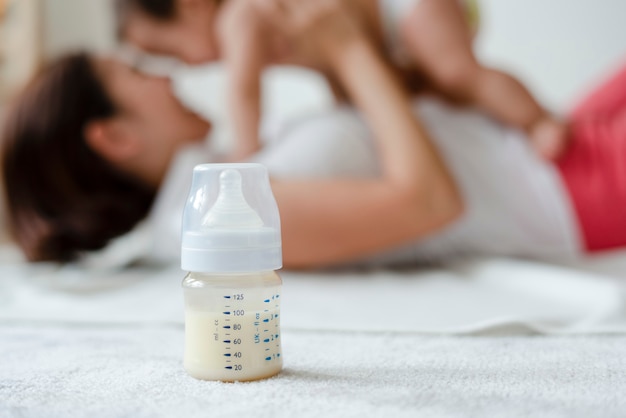
Give infants more than rice cereal. Offer your baby other cereal types such as oatmeal, barley, quinoa, and multigrain cereals.
Keep serving carrots and sweet potatoes. These vegetables are packed with nutrients. Be sure to serve them along with other fruits and vegetables.
Fruit juice should not be given to your baby. A child under 1 year old should not consume juice since it can cause cavities and weight gain. Drinking formula or breast milk for babies and water and milk for older children is the best way to keep babies hydrated. For your baby, you should feed fruits instead of juice, since they contain more fibre and nutrients.
You can prepare your baby food. When you make your baby food, you can avoid additives and foods with high levels of heavy metals. Serve the same foods that you eat as a family, but in a way that your baby can understand. Smooth purées are necessary for infants just starting solid food.
When making rice dishes, use white basmati rice and sushi rice. These types of rice contain less arsenic than other types. Before cooking rice, ensure that it is thoroughly rinsed. Make sure you add plenty of water while cooking, and then drain any extra. By doing so, you’ll reduce the amount of arsenic.
Reduce baby food snacks, such as rice puffs and oat ring cereals. Pureed, mashed, or soft foods that are rich in nutrients such as fruit, vegetables, eggs, cheese, or yoghurt, are a better alternative to processed snacks. You can also reduce the amount of sugar, salt, and refined flour your baby consumes. Preparing snacks for your baby is an excellent idea if you choose rice-free or multigrain options.
Teething biscuits should not be used. Instead, you should give your baby a cold, not frozen teether or a wet washcloth to chew on.
Make sure your water is clean. Lead pipes can cause lead to accumulate in the water. The water in many people’s wells may contain lead and other heavy metals.
you save ₹162
you save ₹42
you save ₹20


